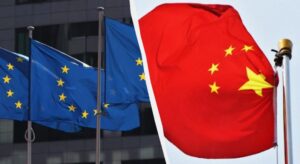
European paint manufacturers are pushing for a review of the European Union’s anti-dumping measures against Chinese exports of titanium dioxide, a key raw material for the industry, saying that they will lead to the closure of plants and further destruction of the region’s industrial base, the Financial Times reports.
Following an anti-dumping investigation launched last year, the European Union imposed temporary duties that could be adjusted or confirmed in January 2025. Paint companies fear that duties of up to 39.7% on titanium dioxide from China will bankrupt small producers and force large ones to move plants outside the EU.
“It’s a question of the survival of the industry,” believes Nicolas Dujardin, chief operating officer of family-owned French paint manufacturer Oceinde. – “If all these anti-dumping investigations lead to such high taxes in Europe, there will be a number of bankruptcies.
The paint and coatings sector will face a prolonged downturn if consumers are hit by higher prices, says Paula Salastie, owner of Finnish company Teknos. If Chinese supplies are diverted elsewhere, a shortage of raw materials will lead to disruptions in production, she says.
“If we can’t sell as much as we planned, we will need to cut jobs,” she said, adding that if duties are imposed, the company will probably look at options for investments outside the EU.
Paint makers believe the duties would be acceptable if introduced gradually along with increased subsidies for local titanium dioxide production.
China’s titanium dioxide capacity has grown from 1.4 million tons in 2008 to a projected 6.1 million tons this year. As a result, China’s share of the global market has risen to 83% from 29%, according to industry information provider TZMI.
Meanwhile, outside China, about 1.1 million tons of capacity was closed during the period, including five plants in the EU, according to estimates by the European TiO2 Coalition, which filed a complaint that led to the launch of an anti-dumping investigation. Paint producers expect the duties imposed in the EU to benefit the UK and also strengthen Turkish competitors, as both countries will still be able to access cheap Chinese raw materials.